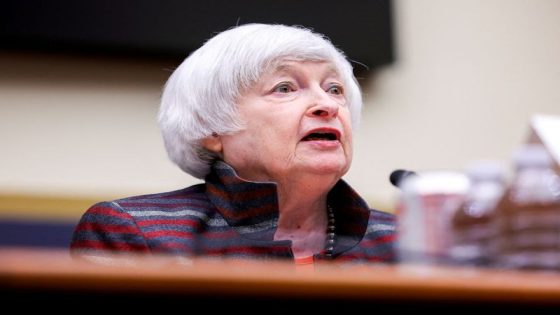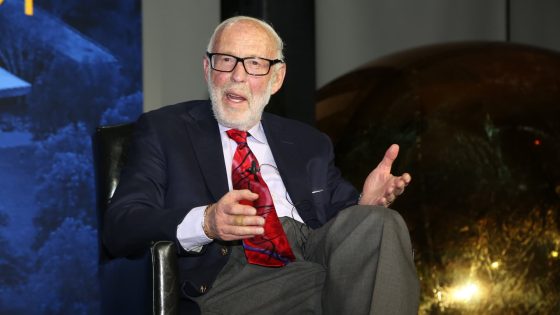SAO PAULO (Reuters) – U.S. Treasury Secretary Janet Yellen said on Tuesday it was “necessary and urgent” to find ways to unlock the value of $285 billion in immobilized Russian sovereign assets to aid Ukraine, saying it would incentivize Moscow to negotiate a just peace in the war.
Washington and its Group of Seven allies have been at odds over what to do with the Russian assets frozen by the U.S., the European Union, Japan and Canada in 2022 to help Ukraine, which faces an estimated cost of some $486 billion to rebuild and recover. Some European countries fear that any seizure of Russian assets could set a dangerous precedent for the future.
“While we should act together and in a considered way, I believe there is a strong international law, economic, and moral case for moving forward,” Yellen said in remarks prepared for a news conference in Sao Paulo ahead of meetings with her G7 and G20 counterparts.
“This would be a decisive response to Russia’s unprecedented threat to global stability. It would make clear that Russia cannot win by prolonging the war and would incentivize it to come to the table to negotiate a just peace with Ukraine.”
Yellen’s comments echo a call by British Prime Minister Rishi Sunak last week for “bolder” action in seizing the Russian assets, given Ukraine’s need for more long-range weapons, drones and munitions, as well as other assistance.
Yellen said the United States and its Group of Seven allies, which imposed sanctions on hundreds of Russian targets on Friday, would continue to act to restrict Russia’s access to materials and money needed to wage its war against Ukraine.
“(Russian President Vladimir) Putin’s strategy is hoping he can simply wait out Ukraine and its allies. We must prove him wrong and show the Kremlin that we will collectively stand with Ukraine for as long as it takes,” Yellen said.
She said she fully endorsed a first step taken by the European Union to harness windfall proceeds from Russian sovereign assets, but pushed for further action.
The EU and G7 have been debating if and how these funds can be used for over a year. Two thirds of these funds are in the EU with the majority of that held by Belgium’s clearing house Euroclear. No agreement was expected at the meeting in Brazil.
The issue has taken on fresh importance since U.S. President Joe Biden remains at loggerheads with the leader of the Republican-led U.S. House of Representatives over efforts to approve some $61 billion in further aid to Ukraine.
Yellen again called on the House to act.
(Reporting by Andrea Shalal; Editing by Raju Gopalakrishnan)
Source Agencies



